
Atauro Island: The Hidden Gem of Timor-Leste
Just a short boat ride from Dili, Atauro Island offers a serene escape from the hustle and bustle of Timor-Leste’s capital. Known for its pristine beaches, crystal-clear waters, and vibrant marine life, Atauro Island is a paradise for those looking to unwind and reconnect with nature. Diving enthusiasts will find Atauro Island particularly appealing. The island boasts some of the best diving spots in the world, with diverse coral reefs teeming with colorful fish and other sea creatures. Even if you are not a diver, snorkeling in these waters is an unforgettable experience. Away from the coast, the island's interior offers lush landscapes and traditional villages. Hiking trails lead you through untouched forests where you can observe unique flora and fauna. Visit the local markets to experience the island’s rich culture and meet the friendly and welcoming inhabitants. Whether you are looking to explore underwater wonders, hike through scenic trails, or simply relax on a quiet beach, Atauro Island has something to offer every traveler.
Local tips in Atauro Island
- Bring cash as there are no ATMs on the island.
- Best time to visit is during the dry season from May to November.
- Respect local customs and dress modestly when visiting villages.
- Book your boat ride in advance, particularly during peak season.
Atauro Island: The Hidden Gem of Timor-Leste
Just a short boat ride from Dili, Atauro Island offers a serene escape from the hustle and bustle of Timor-Leste’s capital. Known for its pristine beaches, crystal-clear waters, and vibrant marine life, Atauro Island is a paradise for those looking to unwind and reconnect with nature. Diving enthusiasts will find Atauro Island particularly appealing. The island boasts some of the best diving spots in the world, with diverse coral reefs teeming with colorful fish and other sea creatures. Even if you are not a diver, snorkeling in these waters is an unforgettable experience. Away from the coast, the island's interior offers lush landscapes and traditional villages. Hiking trails lead you through untouched forests where you can observe unique flora and fauna. Visit the local markets to experience the island’s rich culture and meet the friendly and welcoming inhabitants. Whether you are looking to explore underwater wonders, hike through scenic trails, or simply relax on a quiet beach, Atauro Island has something to offer every traveler.
When is the best time to go to Atauro Island?
Iconic landmarks you can’t miss
Timor
Experience the breathtaking beauty and rich culture of Timor, an enchanting island in East Nusa Tenggara, Indonesia, perfect for adventure seekers and relaxation.

Cristo Rei of Dili
Discover the breathtaking Cristo Rei of Dili, a monumental symbol of hope and peace overlooking the stunning landscapes of Timor-Leste.
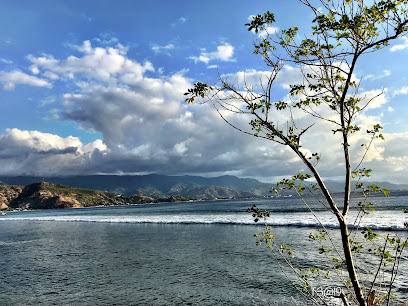
Timorese Resistance Archive & Museum
Explore the rich history and resilience of East Timor at the Timorese Resistance Archive & Museum, a must-visit for history enthusiasts and culture seekers.
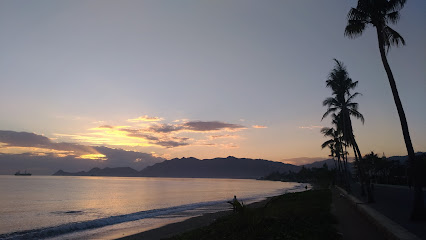
Tatamailau
Experience the breathtaking beauty and cultural richness of Tatamailau, the highest peak in Timor-Leste, perfect for adventure seekers and nature lovers.
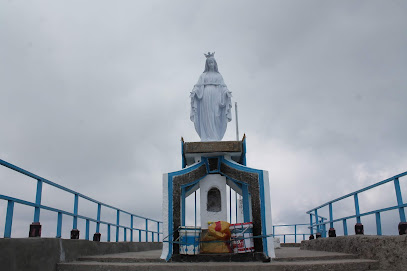
Tais Market
Explore the vibrant Tais Market in Dili, where local culture, traditional crafts, and delicious Timorese cuisine come alive in a bustling atmosphere.
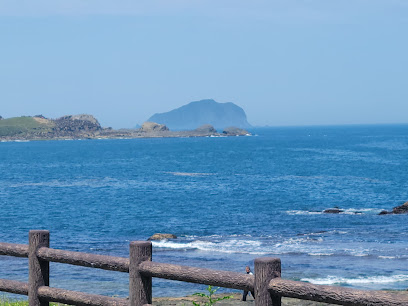
Atauro Dive Resort- Timor Leste
Experience the breathtaking beauty and vibrant marine life at Atauro Dive Resort, your ultimate getaway in Timor Leste.

Compass Diving Atauro Eco Lodge
Discover the beauty of Atauro Island at Compass Diving Eco Lodge - an eco-friendly haven for relaxation and adventure in Timor-Leste.
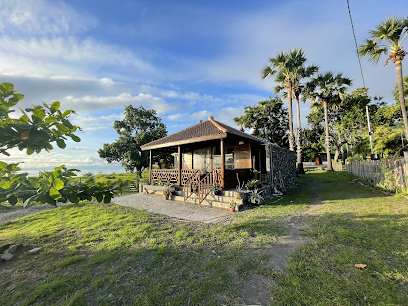
Hospedaria e Restaurante Manukoko Rek
Experience the essence of Timor-Leste at Hospedaria e Restaurante Manukoko Rek, where comfort meets authentic local cuisine in Vila.

Barry's Place
Experience the tranquility and beauty of Timor-Leste at Barry's Place, your perfect resort hotel escape in Beloi.

Immaculate Conception Cathedral
Explore the majestic Immaculate Conception Cathedral in Dili, a stunning blend of faith, architecture, and culture that captivates every visitor.
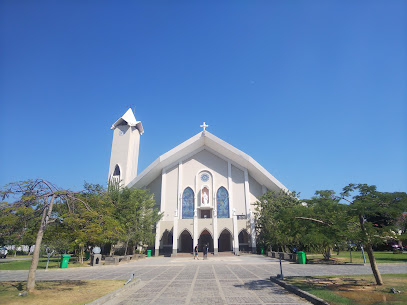
Dive Timor Lorosae
Explore the breathtaking underwater world of Timor-Leste with Dive Timor Lorosae, offering unforgettable diving experiences and vibrant marine life.
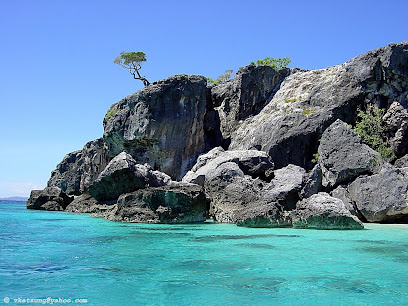
Farol
Experience the beauty and tranquility at Farol Beach, a stunning coastal paradise in Dili, Timor-Leste, perfect for relaxation and adventure.
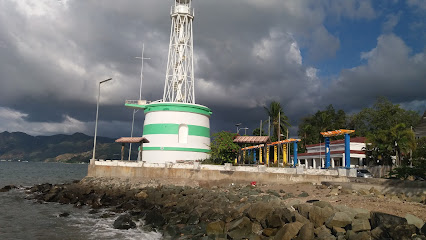
Dolok Oan (Cristo Rei Back Beach)
Experience the tranquil beauty of Dolok Oan, a stunning beach in Dili, Timor-Leste, perfect for relaxation and cultural immersion.
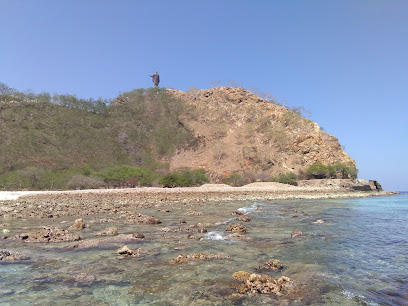
One Dollar Beach
Discover the serene beauty of One Dollar Beach in Timor Leste, a tranquil paradise perfect for relaxation and exploration along the coast.
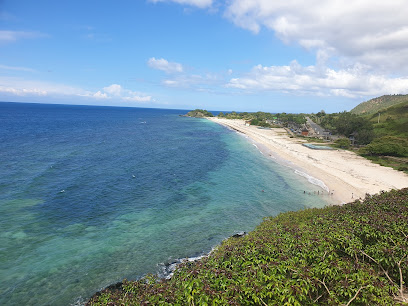
Marobo Hot Spring
Experience the natural beauty and therapeutic waters of Marobo Hot Spring, a hidden gem in Bobonaro, Timor Leste, perfect for relaxation and rejuvenation.
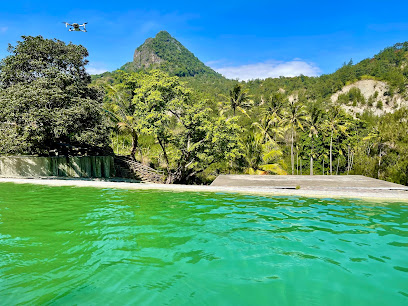
Unmissable attractions to see
An-Nur Mosque
Discover the architectural beauty and spiritual serenity of An-Nur Mosque in Dili, Timor-Leste, a cultural gem worth exploring.
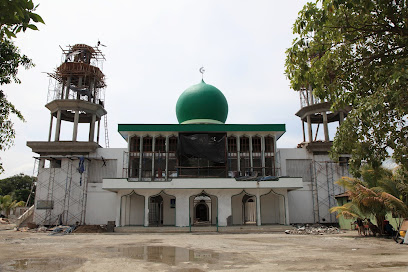
Atauro Dive Resort- Timor Leste
Experience the vibrant coral reefs and warm hospitality at Atauro Dive Resort - your ultimate diving destination in Timor Leste.

Compass Diving Atauro Eco Lodge
Explore the vibrant marine life of Atauro Island at Compass Diving Eco Lodge - a perfect blend of adventure and relaxation.
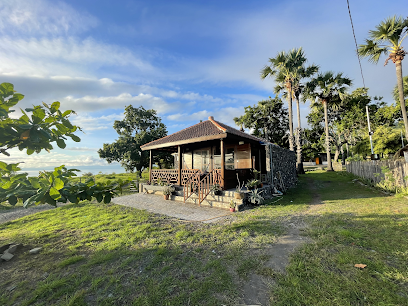
Marobo Hot Spring
Experience the tranquil beauty and healing waters of Marobo Hot Spring, a serene escape in the heart of Bobonaro, Timor-Leste.
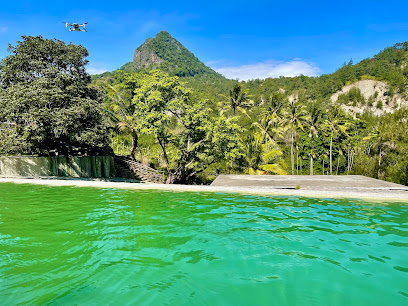
Beloi Beach Hotel Dive Resort
Discover the beauty and adventure of Atauro Island at Beloi Beach Hotel Dive Resort, a premier destination for diving and relaxation.
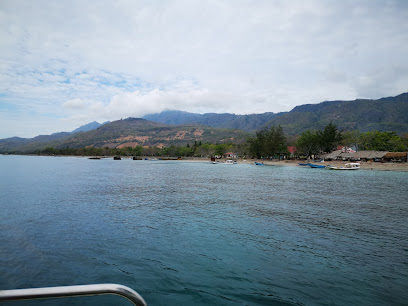
Areia Branca Beach
Discover the serene beauty of Areia Branca Beach in Dili, a tropical paradise perfect for relaxation and adventure amidst Timor-Leste's stunning coastline.
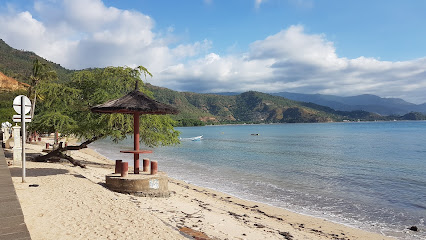
Hakmatek waterfall
Explore the breathtaking beauty of Hakmatek Waterfall in Maubisse, a serene escape surrounded by lush nature and stunning scenery.
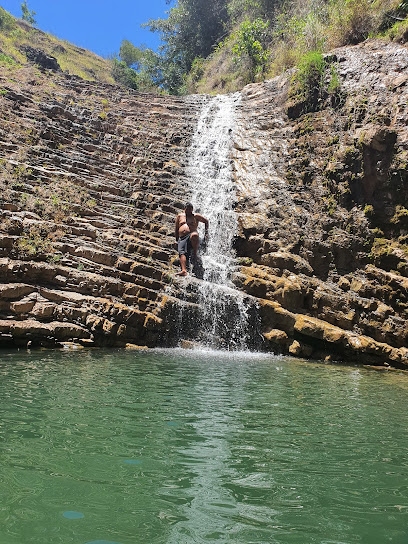
SELOI KRAIK
Explore Seloi Kraik: A Hidden Gem in Timor-Leste Offering Cultural Richness and Natural Beauty.
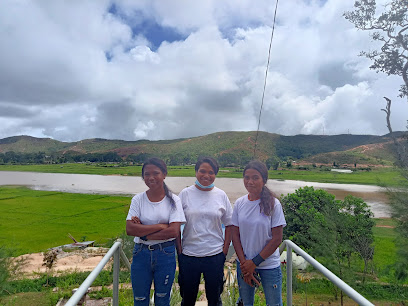
Cribas Waterfall
Experience the enchanting beauty of Cribas Waterfall in Crbas, where nature's tranquility meets vibrant landscapes for an unforgettable adventure.
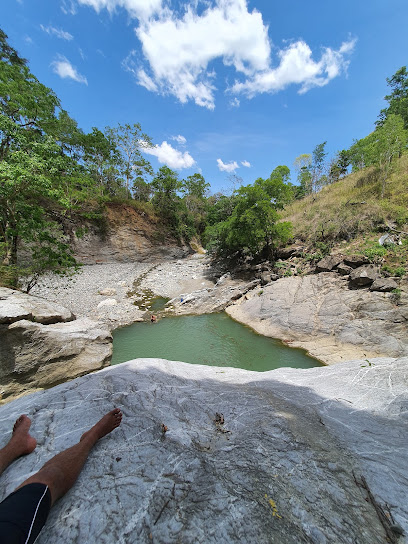
Metinaro Mangrove Protected Area
Immerse yourself in the tranquil beauty of Metinaro Mangrove Protected Area, where nature thrives and adventure awaits in Timor-Leste's pristine ecosystem.
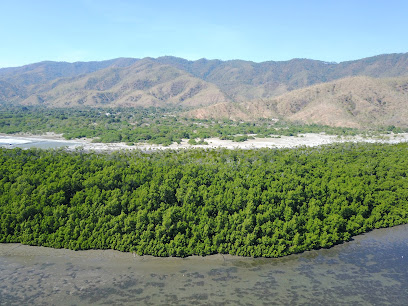
One Tree
Discover the serene beauty of One Tree, a tranquil tourist attraction in Itihuli, perfect for relaxation, photography, and nature exploration.
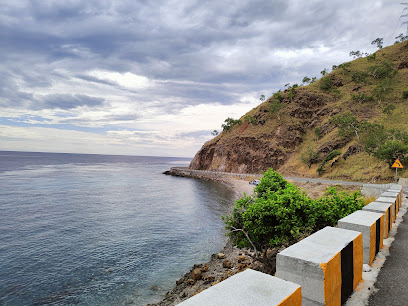
K41
Explore K41 in Timor-Leste, a stunning tourist attraction showcasing nature's beauty and rich local culture, perfect for adventure seekers and tranquility lovers alike.
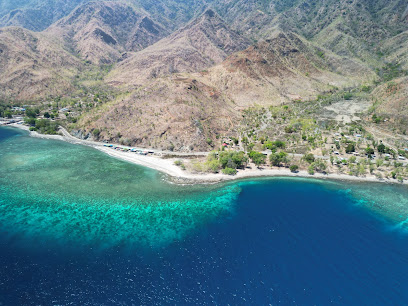
Be Tuda Aituto
Experience the natural beauty and cultural richness of Be Tuda Aituto, a hidden gem in Aituto, Timor-Leste, perfect for every traveler.
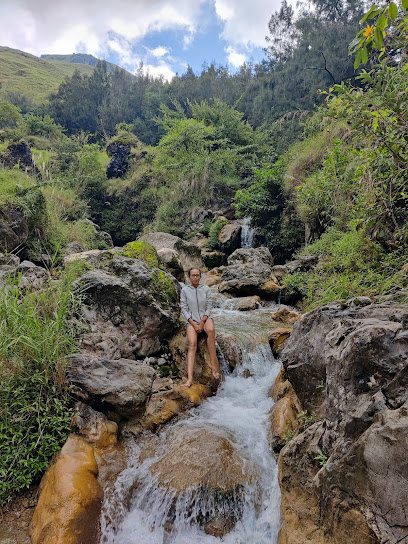
Hera Beach
Experience the serene beauty of Hera Beach in Metinaro, Timor-Leste, where crystal-clear waters and peaceful surroundings await.
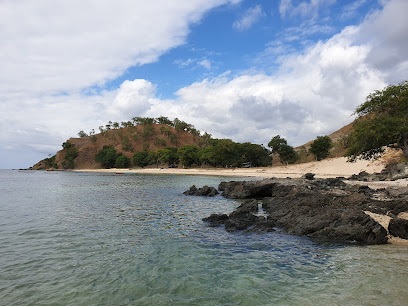
Lamy Beach
Discover the breathtaking beauty of Lamy Beach in Dili, Timor-Leste, where pristine sands meet crystal-clear waters, perfect for relaxation and adventure.
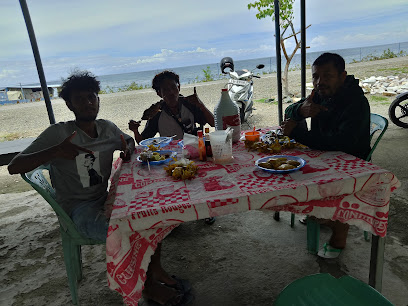
Essential places to dine
Atauro Dive Resort- Timor Leste
Experience breathtaking diving adventures and serene beachfront relaxation at Atauro Dive Resort, Timor Leste's premier destination for underwater exploration.

Caz Bar
Experience the vibrant flavors of Timor-Leste at Caz Bar, where local ingredients meet international cuisine in Dili's lively atmosphere.
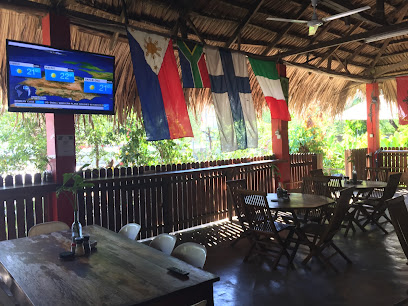
Castaway Bar and Restaurant
Discover Dili's culinary scene at Castaway Bar and Restaurant - where local flavors meet international flair in a vibrant atmosphere.
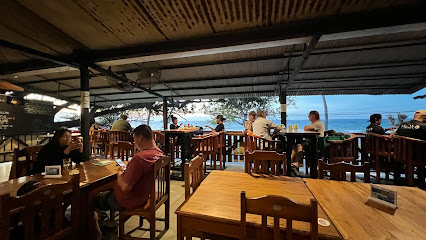
Osteria Italiana
Experience authentic Italian flavors at Osteria Italiana in Díli - where delicious cuisine meets warm hospitality.
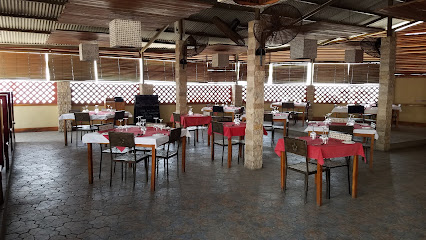
El Legendario
Discover authentic Timorese cuisine at El Legendario in Díli - where every dish tells a story of flavor and tradition.
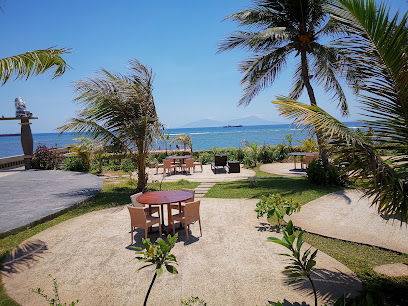
Agora Food Studio
Discover authentic Timorese cuisine at Agora Food Studio in Dili - where every meal tells a story of culture and flavor.
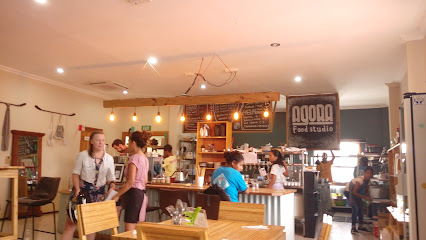
Ocean View Restaurant
Experience exquisite dining at Ocean View Restaurant in Dili – where fresh flavors meet breathtaking ocean views.
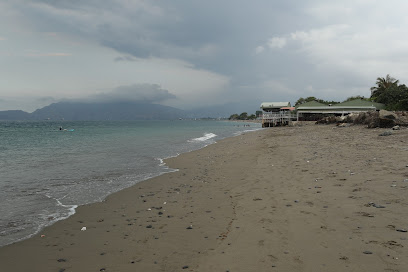
Tito's Restaurant
Experience authentic Portuguese cuisine at Tito's Restaurant in Dili – where tradition meets taste in every dish.
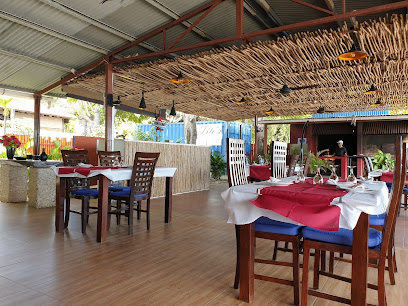
Dilicious Timor
Discover authentic Timorese cuisine at Dilicious Timor in Dili – a culinary journey through East Timor's rich flavors awaits!
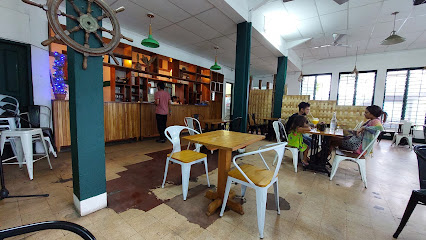
Great Wall Restaurant
Discover authentic Chinese flavors at Great Wall Restaurant in Dili - a culinary gem for tourists seeking delicious dining experiences.
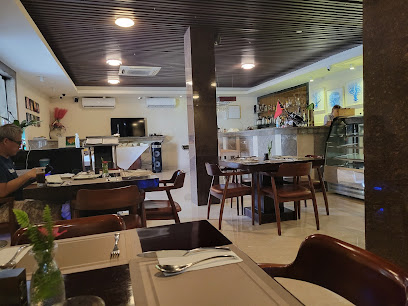
Restaurante Tavirense
Experience authentic Portuguese cuisine at Restaurante Tavirense in Dili – where every dish tells a story of tradition and flavor.
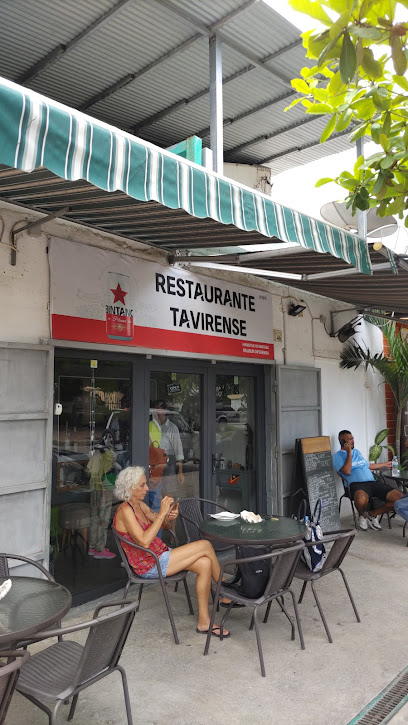
New 88 Restaurant
Experience authentic East Timorese cuisine at New 88 Restaurant in Dili – where fresh flavors meet warm hospitality.
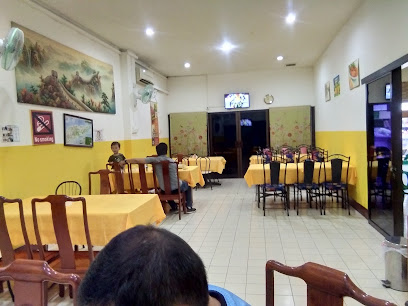
Restaurante Bidau
Experience authentic Asian flavors at Restaurante Bidau in Dili - A culinary gem offering delicious dishes in a welcoming atmosphere.
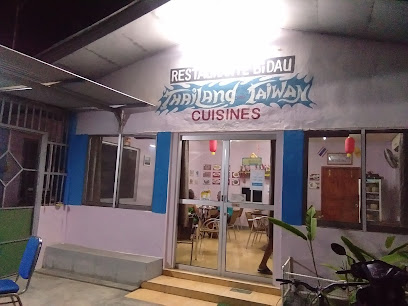
Aroma Cafe
Discover culinary delights at Aroma Cafe in Dili – where local flavors meet international cuisine in a cozy setting.
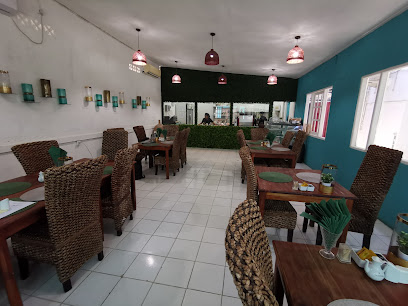
Ahi Matan
Experience the vibrant flavors of East Timor at Ahi Matan – where traditional meets contemporary cuisine in Dili.
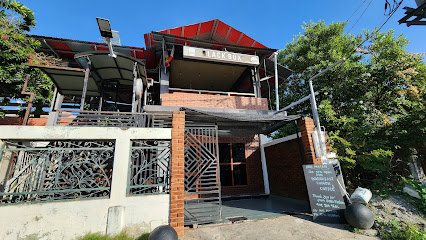
Markets, malls and hidden boutiques
Atauro Dive Resort- Timor Leste
Experience the vibrant marine life and tranquil beauty of Atauro Island at the Atauro Dive Resort, your ultimate destination for adventure and relaxation.

Oil Paintings For Sale
Explore Dili's artistic soul at this vibrant art gallery showcasing local talent and breathtaking oil paintings that capture Timor-Leste's beauty.
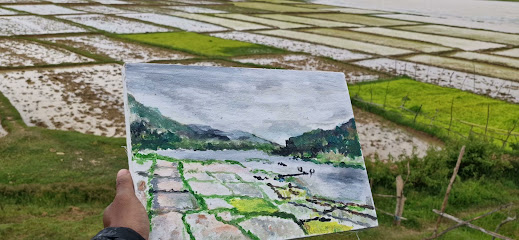
Lita Store
Discover Lita Store in Dili for a wide range of affordable groceries and local delicacies, making your travel experience seamless and enjoyable.

Boneca de Atauro (atelier)
Discover the vibrant artistry of Boneca de Atauro, the enchanting doll store on Atauro Island, showcasing handcrafted treasures of Timorese culture.
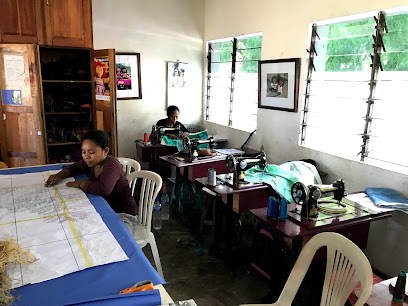
TIO Hobbies & Sports
Discover a world of hobbies and sports at TIO Hobbies & Sports in Dili, where passion meets community in a vibrant shopping experience.
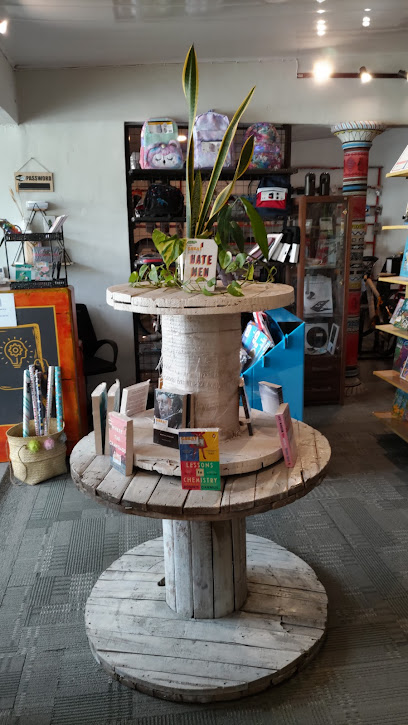
Beloi Markets
Discover the heart of Beloi at the lively markets, where local flavors and crafts come together in a vibrant cultural experience.
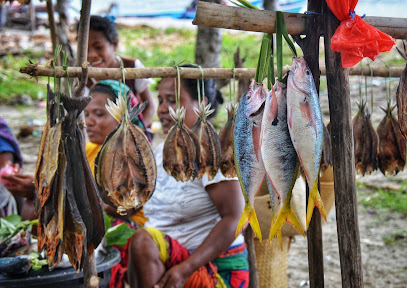
Things and Stories
Explore Things and Stories at Dili Port for a unique selection of local crafts and home goods, perfect for souvenirs and gifts.
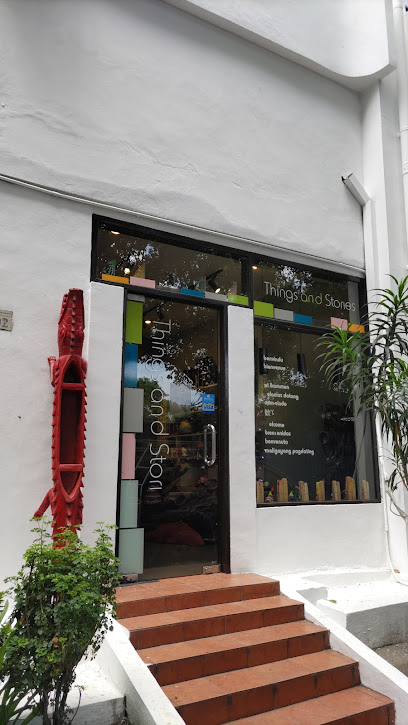
GREAT Bookshop
Explore a captivating world of literature at GREAT Bookshop in Díli, where books and coffee create the perfect escape.
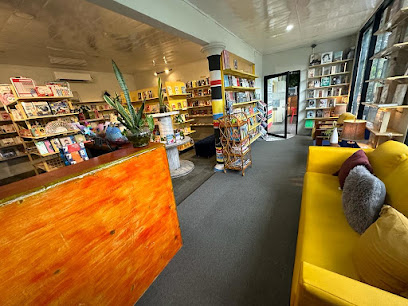
Ida nee Shop
Discover the essence of Timor-Leste at Ida nee Shop, where unique gifts and local crafts await every traveler.

Boneca de Ataúro (shop)
Explore the cultural charm of Timor-Leste at Boneca de Ataúro, a delightful doll store in Dili showcasing handcrafted artistry and local traditions.
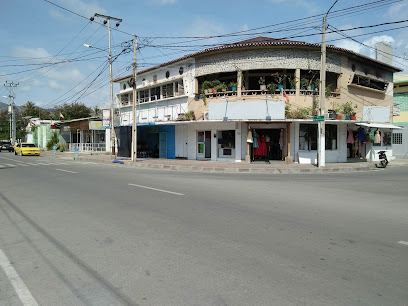
Beloi Warehouse Store
Explore the vibrant Beloi Warehouse Store for unique local crafts, affordable prices, and a taste of authentic Beloi culture.

Arte Vida
Discover the essence of Timor-Leste at Arte Vida, a charming souvenir store in Dili offering unique local crafts and gifts.
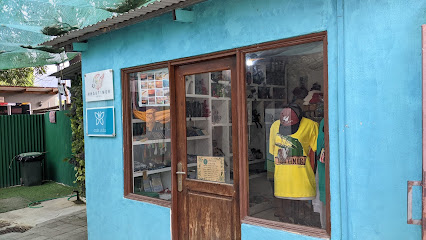
Empreza Diak - Ngo Shop
Explore Empreza Diak in Beloi, Timor-Leste for authentic handicrafts and sustainable products that embody local culture and artistry.
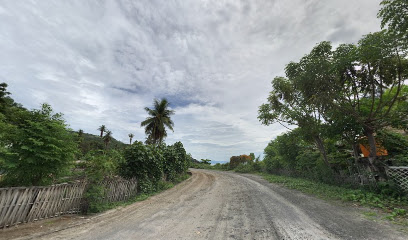
Unique mini market
Explore Unique Mini Market in Díli for distinctive furniture and authentic local craftsmanship that celebrates Timor-Leste's rich artistic heritage.

Centro Etnique
Discover authentic Timorese crafts and souvenirs at Centro Etnique, a cultural treasure in the heart of Dili.
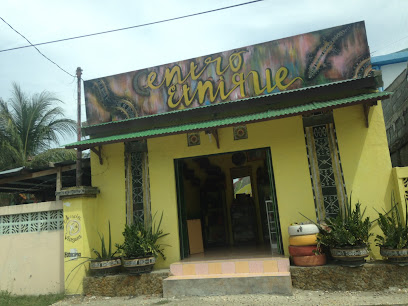
Essential bars & hidden hideouts
Atauro Dive Resort- Timor Leste
Experience the ultimate diving adventure and tropical relaxation at Atauro Dive Resort, a hidden gem in Timor Leste's pristine waters.

Castaway Bar and Restaurant
Experience the vibrant flavors and lively atmosphere at Castaway Bar and Restaurant in Dili, the perfect place to relax and enjoy local cuisine.
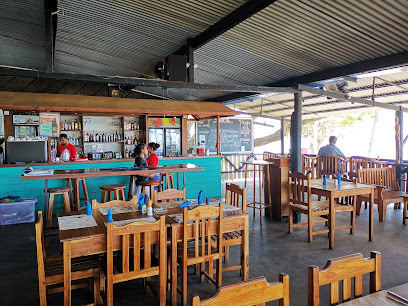
Beloi Beach Hotel Dive Resort
Discover the enchanting Beloi Beach Hotel Dive Resort on Atauro Island, where adventure meets relaxation in a tropical paradise.
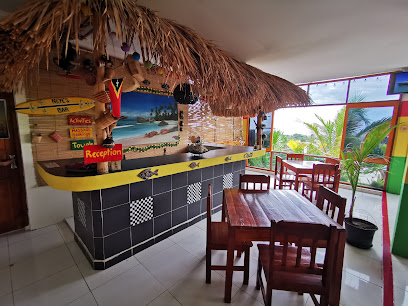
Spooners Bar and Grill
Experience the vibrant atmosphere of Spooners Bar and Grill in Dili, where local flavors meet stunning coastal views and lively entertainment.
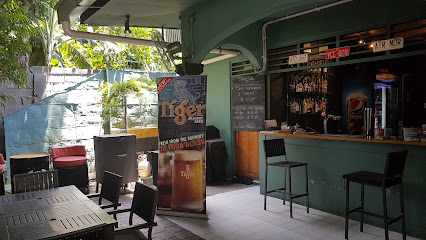
Black Box Cafe and Bar
Discover the lively spirit of Dili at Black Box Cafe and Bar, where refreshing drinks and great music create an unforgettable atmosphere.
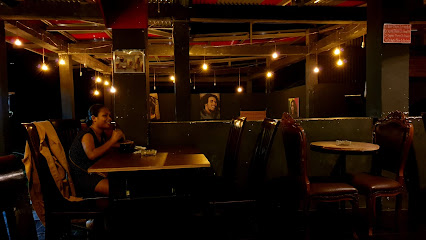
Tower Cafe & Bar
Discover the lively atmosphere and stunning views at Tower Cafe & Bar in Dili, a perfect blend of local culture and refreshing drinks.

Olé Bar & Tapas
Discover Olé Bar & Tapas in Díli for a delightful mix of local flavors and vibrant nightlife in an inviting atmosphere.
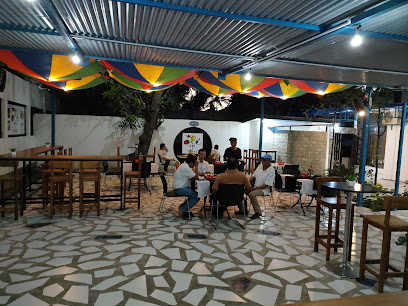
Nova Jar
Discover the vibrant nightlife of Dili at Nova Jar, a lively bar offering a unique blend of local and international drinks.
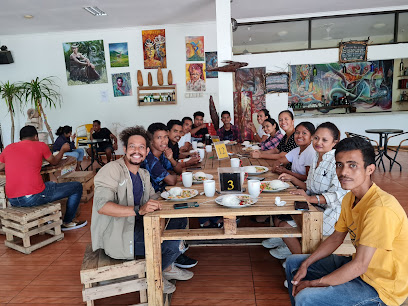
Ponkys Cocktail Lounge
Discover the vibrant energy of Dili at Ponkys Cocktail Lounge, where expertly crafted cocktails meet a lively atmosphere.
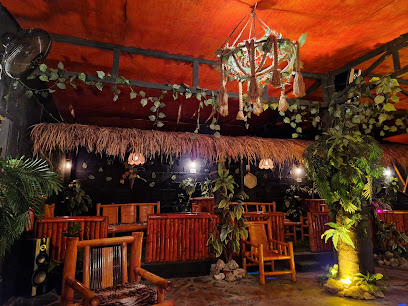
Incanto Coffee & Bar
Discover the tranquil charm of Incanto Coffee & Bar in Nain Feto Subdistrict, where breathtaking views and exquisite beverages await.
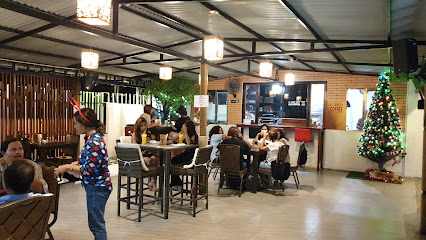
Ponkys Bar & Cafe
Discover the tropical charm of Ponkys Bar & Cafe on Atauro Island, where stunning views and delightful refreshments await every visitor.
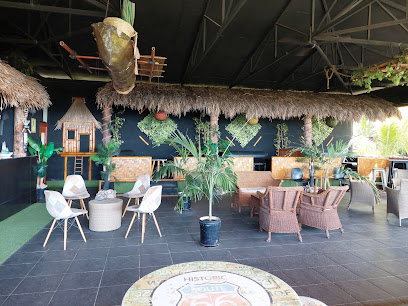
Reggae Bar
Experience the vibrant atmosphere of the Reggae Bar in Dili, where music, drinks, and good vibes come together in a tropical paradise.

Mr. Frango
Experience the lively nightlife of Díli at Mr. Frango, where refreshing drinks and a vibrant atmosphere await every visitor.
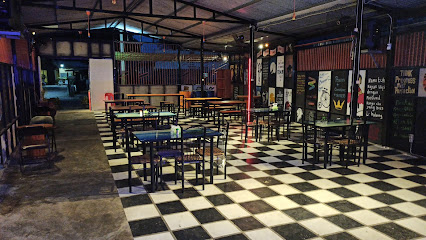
Cantinho dos Manos
Discover the vibrant atmosphere and local charm of Cantinho dos Manos, a must-visit bar in Dili, where tradition meets modern hospitality.
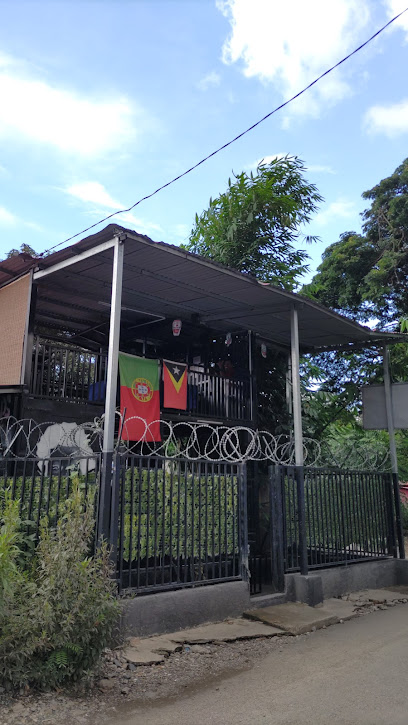
Local Phrases about Atauro Island
-
- HelloBondia
[bon-dia] - GoodbyeAdeus
[a-deus] - YesSim
[sim] - NoLae
[lae] - Please/You're welcomeFavor
[fa-vor] - Thank youObrigadu
[o-bri-ga-du] - Excuse me/SorryDeskulpas
[des-kul-pas] - How are you?Diak ka lae?
[di-ak ka lae] - Fine. And you?Diak. Ita boot?
[di-ak. i-ta boot] - Do you speak English?Ita koalia Ingles?
[i-ta koa-li-a ing-les] - I don't understandLauk kompriende
[lauk kom-prien-de]
- HelloBondia
-
- I'd like to see the menu, pleaseHau hakarak hare menu, favor
[hau ha-ka-rak ha-re me-nu, fa-vor] - I don't eat meatHau lai manan asu
[hau lai ma-nan a-su] - Cheers!Saude!
[sau-de] - I would like to pay, pleaseHau hakarak selu, favor
[hau ha-ka-rak se-lu, fa-vor]
- I'd like to see the menu, pleaseHau hakarak hare menu, favor
-
- Help!Ajuda!
[a-ju-da] - Go away!Ba iha
[ba i-ha] - Call the Police!Kontak Polisia!
[kon-tak po-li-sia] - Call a doctor!Kontak dotor!
[kon-tak do-tor] - I'm lostHau mate
[hau ma-te] - I'm illHau moras
[hau mo-ras]
- Help!Ajuda!
-
- I'd like to buy...Hau hakarak hola...
[hau ha-ka-rak ho-la] - I'm just lookingHau deit hare
[hau deit ha-re] - How much is it?Kuantu precu ne'e?
[kuan-tu pre-cu ne-e] - That's too expensiveNe'e boot liu
[ne-e boot liu] - Can you lower the price?Ita bele halo kontratu ba precu?
[i-ta be-le ha-lo kon-tra-tu ba pre-cu]
- I'd like to buy...Hau hakarak hola...
-
- What time is it?Oras ki'ik saida ona?
[o-ras ki-ik sa-i-da o-na] - It's one o'clockOras ida
[o-ras i-da] - Half past (10)Tuku nulu
[tu-ku nu-lu] - MorningManha
[man-ha] - AfternoonTarde
[tar-de] - EveningTarde
[tar-de] - YesterdayOhin loron
[o-hin lo-ron] - TodayOhin
[o-hin] - TomorrowAban
[a-ban] - 1Ida
[i-da] - 2Rua
[ru-a] - 3Tolu
[to-lu] - 4Haat
[ha-at] - 5Lima
[li-ma] - 6Neen
[ne-en] - 7Hitu
[hi-tu] - 8Ualu
[ua-lu] - 9Sia
[si-a] - 10Sanulu
[sa-nu-lu]
- What time is it?Oras ki'ik saida ona?
-
- Where's a/the...?Iha nebee...?
[i-ha ne-bee] - What's the address?Enderecu saida ne'e?
[en-de-re-cu sa-i-da ne-e] - Can you show me (on the map)?Ita bele hare ba hau (iha mapa)?
[i-ta be-le ha-re ba hau (i-ha ma-pa)] - When's the next (bus)?Koalia ne'e
[ko-a-li-a ne-e] - A ticket (to ....)Bilhete (ba ....)
[bil-he-te (ba)]
- Where's a/the...?Iha nebee...?
History of Atauro Island
-
Atauro Island, known locally as 'Ataúro,' has a rich history of early settlement dating back thousands of years. The island is believed to have been continuously inhabited by indigenous groups who developed unique cultural practices, languages, and traditions. The Ataúro people have a deep connection to the land and sea, relying on fishing and subsistence agriculture for survival. Archaeological findings have uncovered ancient artifacts, including pottery and tools, shedding light on the island's early human activities.
-
In the 16th century, Portuguese explorers arrived in Timor-Leste, bringing with them a period of colonization that lasted for over 400 years. Atauro Island became part of the Portuguese Timor territory. The Portuguese influence is still evident today in the island's architecture, language, and religious practices. Catholicism was introduced, and many of the island's inhabitants converted, leading to the construction of several churches that remain important cultural landmarks.
-
During World War II, Atauro Island, like the rest of Timor-Leste, was occupied by Japanese forces. The island's strategic location made it a valuable military outpost. The occupation was a difficult period for the islanders, who faced harsh conditions and forced labor. After the war, the island was returned to Portuguese control, but the memories of this tumultuous time remain a significant part of Atauro's history.
-
In 1975, following the Carnation Revolution in Portugal, East Timor declared independence. However, shortly thereafter, Indonesia invaded and occupied the territory, including Atauro Island, leading to a prolonged and brutal conflict. The island's residents, like many in Timor-Leste, experienced significant hardship during this period. The struggle for independence culminated in a UN-supervised referendum in 1999, where the Timorese overwhelmingly voted for independence, leading to the withdrawal of Indonesian forces and the establishment of Timor-Leste as a sovereign nation in 2002.
-
Since gaining independence, Atauro Island has seen a cultural renaissance and a focus on sustainable development. The island's rich marine biodiversity has made it a popular destination for eco-tourism, with efforts to protect coral reefs and marine life. Local communities have embraced traditional crafts, such as weaving and wood carving, as a means of preserving their heritage and supporting the local economy. The island hosts cultural festivals and events that celebrate its unique history and traditions, attracting visitors from around the world.
Atauro Island Essentials
-
Atauro Island is located approximately 25 kilometers north of Dili, the capital of Timor-Leste. The most common way to reach the island is by ferry. There are several ferry services, including both public and private options, which operate from Dili to Atauro Island. The journey takes about 2 to 3 hours depending on the sea conditions. Alternatively, you can hire a private speedboat for a quicker trip, which takes about 1 hour. Helicopter transfers are also available for those seeking a faster and more scenic route.
-
Once on Atauro Island, transportation options are limited. The most common ways to get around are by walking, cycling, or using local motorbike taxis known as 'ojeks.' There are no formal public transport systems or car rentals on the island. For longer distances, you can arrange for private transport through your accommodation or local guides. It is advisable to plan your transportation needs in advance, especially if you intend to explore remote parts of the island.
-
The official currency in Timor-Leste is the US Dollar (USD). On Atauro Island, cash is the preferred method of payment, as credit card facilities are limited and often unavailable. It is recommended to bring enough cash for your entire stay, as there are no ATMs on the island. Some accommodations and larger establishments may accept credit cards, but it is always best to confirm in advance. Carry small denominations for easier transactions.
-
Atauro Island is generally a safe destination for tourists. However, it is always advisable to take standard precautions. Avoid walking alone at night in unfamiliar areas and keep an eye on your belongings in crowded places. Petty theft can occur, so always secure your valuables. There are no specific high-crime areas targeting tourists, but it is best to stay vigilant and aware of your surroundings.
-
In case of emergency, the local emergency number is 112. There are limited medical facilities on Atauro Island, so it is crucial to have travel insurance that covers medical emergencies. Basic medical supplies can be found at local clinics, but for serious medical issues, you may need to be evacuated to Dili or another nearby city. Always carry a basic first aid kit and any necessary medications. Inform your accommodation of any health conditions so they can assist in emergencies.
-
Fashion: Do dress modestly, especially in villages and religious sites. Avoid wearing revealing clothing. Religion: Do respect local customs and traditions. Always remove your shoes when entering homes and some traditional buildings. Public Transport: Do use ojeks for local travel and always agree on a fare beforehand. Don't expect formal public transport systems. Greetings: Do greet people with a smile and a handshake. A slight bow of the head is also a sign of respect. Eating & Drinking: Do try local dishes and accept food offerings graciously. Don't refuse hospitality, as it is considered impolite.
-
To experience Atauro Island like a local, visit the weekly markets where you can buy fresh produce and handmade crafts. Engage with locals, as they are often friendly and willing to share stories about the island's history and culture. Don't miss visiting local dive sites, as Atauro Island is known for its exceptional marine biodiversity. For a unique cultural experience, participate in a traditional fishing trip or join a local weaving workshop.
Trending Landmarks in Atauro Island
-
Timor
-
Cristo Rei of Dili
-
Timorese Resistance Archive & Museum
-
Tatamailau
-
Tais Market
-
Atauro Dive Resort- Timor Leste
-
Compass Diving Atauro Eco Lodge
-
Hospedaria e Restaurante Manukoko Rek
-
Barry's Place
-
Immaculate Conception Cathedral
-
Dive Timor Lorosae
-
Farol
-
Dolok Oan (Cristo Rei Back Beach)
-
One Dollar Beach
-
Marobo Hot Spring
Nearby Cities to Atauro Island
-
Things To Do in Aileu
-
Things To Do in Gleno
-
Things To Do in Ermera
-
Things To Do in Same
-
Things To Do in Bobonaro
-
Things To Do in Baucau
-
Things To Do in Suai
-
Things To Do in Lospalos
-
Things To Do in Darwin
-
Things To Do in Makassar
-
Things To Do in Manado
-
Things To Do in Bali
-
Things To Do in Balikpapan
-
Things To Do in Surabaya
-
Things To Do in Yogyakarta







